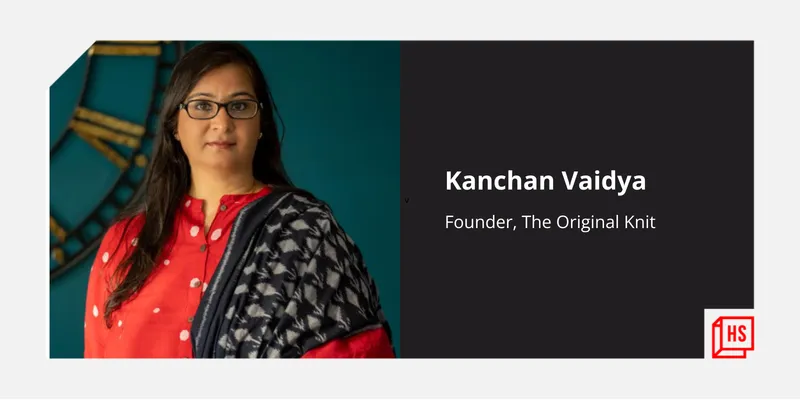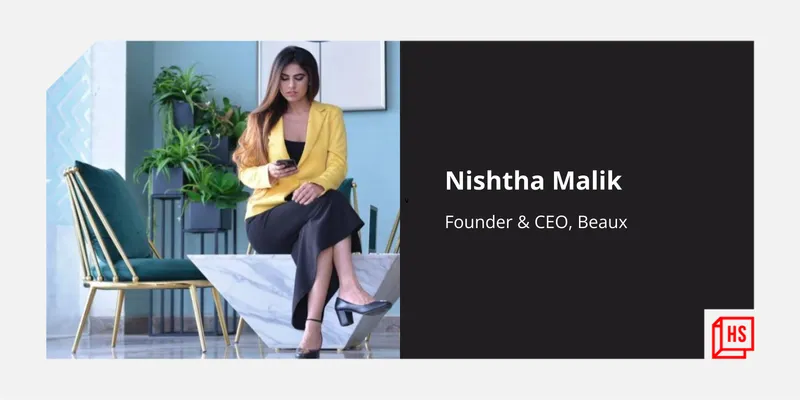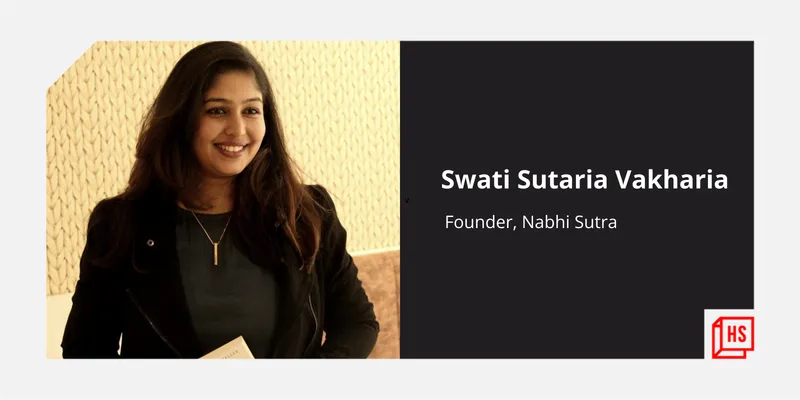[Women’s Day] Meet 7 women entrepreneurs who have made a mark globally through their online ventures
On Women’s Day, HerStory shares the stories of seven women entrepreneurs from across India who started small, had faith in their dreams, went on to clock good revenue, and are standing out despite the strong competition.
International Women’s Day, which is observed on March 8 every year, encourages the society to promote gender equality and make equal space for all. With time, women have managed to come a long way and are breaking all barriers, and this day is all about celebrating the achievements of women and to appreciate their efforts.
From having a difficult time fundraising to mastering work-life balance, women entrepreneurs face unique challenges compared to their male counterparts. Despite these hurdles, there are many success stories of female entrepreneurs that highlight their remarkable achievements in our country.
HerStory lists seven women entrepreneurs who overcame challenges to emerge stronger and build successful online ventures not just in India but globally as well.
The Mom Store
Entrepreneur Surbhi Bhatia started her journey with in 2019 driven by her personal experience as a new mother.
The Bengaluru-based startup is a private label for maternity and kids apparel and a curated marketplace for non-apparels where more than 25 brands sell products through its platform.
“We started small with just three products in the beginning of 2019 and the goal has always been to celebrate the journey of motherhood and allow the mother to have the best choice of products for herself and her baby,” says Surbhi.

“The pandemic hit within a year of launch, so the last two years have been challenging as well as rewarding. We saw 200 percent growth rate each year, but operations was a huge challenge with lockdown restrictions impacting logistics and supply chain. We changed our sourcing strategy pivoting into a complete ‘Made in India’ brand, supporting our vendor and manufacturer network to keep their facilities open and not lose business,” she adds.
According to Surbhi, 95 percent of its revenue is currently generated online and 5 percent from retail and B2B. About 50 percent revenue comes from its online platform, and the rest from sales on online marketplaces such as Amazon, Myntra, Nykaa, TATA Cliq, FirstCry, etc.
“We are looking to become a Rs 100 crore brand in the next three years and plan to raise our first round of funding this year,” she says. “We have 6,700 SKUs on the website at present, including our partner brands.”
The Mom Store supplies its products across the country through ecommerce and is also present in retail through Mothercare stores across India. What started as a pilot in six stores in South India has extended to a footprint of 100+ stores across India.
“We have started selling internationally through ecommerce and are looking to expand our ops through an international retail network,” Surbhi adds.
The Original Knit
Started in 2015, is a Gurugram-based startup that sells handmade woolen wear for kids.
“It all started when my son was just six-months-old and I was hunting for winter clothes for him. I was not able to find elegant yet affordable stuff. The ones available in the market were either imported and expensive, or cheap Chinese products. I missed the hand woven stuff I wore as a child in Himachal Pradesh. With infant and toddler girls, we all yearn for more choice and colors,” says Founder Kanchan Vaidya.

“I decided to quit my career as a HR manager in an Australian firm. I toured and contacted the hill women in Himachal and started pilots for creating and perfecting my products and supply chain. I saw the work as a social venture liberating the poor hill women with an income that paid for LPG and school fees,” she adds.
Today, The Original Knit has 450 craft persons spread across Himachal Pradesh, Haryana, Punjab, and Delhi. “I will be replicating the model in Uttaranchal shortly,” she says.
In terms of growth, the startup, which has both online and offline presence, claims to have been profitable since inception.
“We are currently growing at about 70 percent every year, and the pandemic has not impacted us. We sell on FirstCry and Myntra in India, and on 6thStreet.com in Gulf. We also ship bulk orders to North America, W. Europe, and New Zealand. The brand has recently been valued between Rs 28 crore - Rs 35 crore,” Kanchan adds.
The Original Knit started with a sweaters line with just 30 products, and now has 1,050 SKUs. The startup sells sweater sets, mittens, socks, blankets, photo props, and all crib accessories. It has plans to add another five product lines this fall for which proto-typing is currently in progress.
The company is 99 percent women led, including the founders, product crafters, supply chain, quality control, and packing teams.
MySilkLove
Priyanka Ghule started , an online portal for handcrafted silk sarees, in August 2020, with a desire to improve the livelihood of weavers and artisans.
“We source directly from weavers, and so no middlemen, and that’s why our prices are very competitive. We offer assisted buying with videos and live calls to check the quality and colors of the products. We're the only silk saree brand that offers no-questions asked exchange and return policy,” says Priyanka.

The Pune-based ecommerce startup designs and sources handcrafted products from more than 2,000 local artisans in India.
“We’ve been growing 15 percent month-on-month since inception. We’ve served more than 17,000 customers till now, and have fulfilled 20,000+ orders. From August 2020 to February 2022, we have generated Rs 5 crore revenue,” Priyanka adds.
“We are a bootstrapped and profitable company. We plan to raise Rs 10 crore for our future expansions and marketing as we add more weavers and SKUs on the website,” says Priyanka.
The digital-first brand ships in India and across the globe. It is targeting a revenue of Rs 10 crore for FY 22-23 and expects to see a run rate of Rs 100 crore in the next five years.
“We have more than 3,000 SKUs, all premium sarees, under one single platform. We have nine different types of silks like Kanjivaram, Banarasi, Paithani, South Silk, Organza, and many more. Recently, we launched traditional salwar suits as well,” Priyanka adds.
BownBee
To pursue her dream of making Indian artisanal crafts accessible to the world, Monika Chaudhary decided to quit her corporate job of 15 years to launch online ethnic kids wear brand in 2015.
The startup has grown from just 20 products in 2015 to over 600 products. At present, the brand is supported by a team of 20 people working from their Gurugram office.
In terms of revenue, it claims to have been growing 80-100 percent percent Y-o-Y, with healthy gross margins.
“As a digital-first brand, we have been very focussed on growing online. Currently, 97 percent of our revenue come from online channels,” says Monika. Bownbee is also operational in three international markets.

Apart from its own website, BownBee’s products are available on ecommerce platforms like Myntra, Amazon, FirstCry, Nykaa, Ajio, etc.
“We are focused on expanding our product line, channel, and markets around the world and making BownBee a Rs 50 crore company in the next three years. New launches are planned in the kids wear category, party wear, accessories, footwear, etc., to be able to offer everything for kids occasional wear under one roof,” Monika says.
“We intend to raise external funding next year,” she adds.
Since inception, the brand claims to have been working with artisans and weavers from different states in order to maintain the right blend of local flavour and in-house designs in its products.
Taking the social cause further, BownBee is starting its in-house manufacturing unit supporting rural women at Monika’s home town in Uttar Pradesh. The first production unit is scheduled to be started in March ’22. The company plans to develop this network further and create a wide range of opportunities for rural women.
Beaux
Nishtha Malik launched Beaux, a brand which offers wigs and hair extensions made of human hair, in 2019. The Kota-based brand is creating personalised solutions for women facing hair thinning and hair loss problems.
After completing her education from the University of Manchester, Nishtha, who lost her mother due to cancer, launched the brand in memory of her mother who was looking for a good wig during her chemotherapy.
Nishtha developed a process to find a perfect match for women, which included a personalised questionnaire, utilising customer data, and making perfect products according to their requirements.

The brand started out with cancer wigs and hair extensions and slowly made its way to customised hair toppers and solutions both in the B2B and B2C market as well.
“Despite the pandemic, the company grew by 500 percent in the second year, making a robust growth in the Indian market,” says Nishtha. “We saw a major increase in orders on our online portal. Also, our exports saw a major rise as well in the United States, the UK, and the African market as people were switching to Indian manufacturers rather than sourcing hair from China.”
“About 50 percent of our revenue comes from our website (B2C) and online portals, another 30 percent from exports to various countries and salons worldwide and remaining 20 percent from our offline sale channels with salon collaborations in India,” she adds.
The startup is presently exporting to over 25 countries both to consumers who order directly on its website and also doing B2B with salons worldwide.
“We cater to everything -- from products ranging for length and volume to covering of hair thinning and bald patches. Also, we are planning to introduce hair care and expand into the field,” Nishtha says.
“Our target is to expand in the European region,” she adds. “We have recently opened our flagship store in Rajasthan and plan to expand to other cities in India.”
Ziniosa
Launched in 2018 by Ashri Jaiswal and Varun Ramani, is a multi-faceted solution to solve luxury fashion's biggest problems like affordability, sustainability, and unavailability with its rental and resale model.
The Bengaluru-based startup allows customers to rent, buy, consign, and auction luxury products using its omnichannel approach.
“While our rental model existed from 2018, our re-sale/pre-loved model was only born during the pandemic. Our existing customers were adapting to a more sustainable way of life and were no longer shying away from selling or buying pre-loved luxury products. We immediately changed our model to accommodate their needs and launched our pre-loved model in July 2020 during the pandemic,” says Ashri.

Its Y-o-Y growth is 300 percent, with 200 percent increase in consignees wanting to sell with it. The startup’s website saw 77 percent m-o-m growth, with over 10,000+ active customers.
“100 percent of our revenue is generated online. With 70 percent from our website and 30 percent from Instagram and WhatsApp,” Ashri says.
With over 10,000+ active users and a reach of one million on Instagram, the firm is now looking to scale up and raise its first round of funding of Rs 3 crore.
Domestically, Ziniosa caters to all of India. Internationally, it ships to the US and Canada. It also allows consignees from some South East Asian countries and some parts of Europe to sell with it.
“Our next target is to expand to the UAE,” says Ashri. “Our growth plans include dominating the market by launching an app, hiring more people on our sales, operational, and technical teams.”
The startup now has seven product verticals, and with the launch of its new website, it will have over 15,000+ pre-loved products along with a men's line.
Nabhi Sutra
A strong believer in home remedies and natural products, Swati Sutaria Vakharia often found herself drawn towards the ancient science of Ayurveda.
During her breastfeeding phase, she faced a few health issues. Swati knew that precautionary measures were important for herself and her newborn, and this compassion for healing led her to form .
Founded in 2019, Nabhi Sutra is a pioneer of “wellness through belly button oils”. Its product range comprises solutions for brain development, acne, hair care, skincare, menstrual pain relief, and joint pain relief.

“We follow the three drops formula. This means, you need to apply and massage 3 drops of oil for 3 minutes on your navel, and wait for three weeks. After consistent application, you see the results for yourself. The transformation your body will go through from within with these three steps will help you for a lifetime,” says Swati.
Nabhi Sutra claims to be 100 percent safe and chemical-free, with no artificial fragrances. Certified by ISO, GMP, and approved by the FDA, the startup claims that more than 1.2 lakh people are benefitting from its products.
Started with Rs 5,00,000 initially, Nabhi Sutra touched Rs 1 crore in revenue in its very first year. During the pandemic, it kept saw 50 percent growth rate and ticked more than Rs 1.5 crore revenue in its second year.
Now, the Vadodara-based startup is heading to its third year and is seeing more than 100 percent growth.
“Soon, we will be reaching over Rs 3 crore a year,” Swati says. “We are doing 80 percent via our own website, 15 percent via Amazon, and the rest 5 percent via other marketplaces like Flipkart, 1mg, FirstCry, and others.”
The startup has about 12 different products on its website. Of these, 10 products are from Nabhi Sutra and two products are from its newly-launched brand, ADHYAY.
“We are selling our products pan India via our ecommerce solutions. We are not yet actively present on off-line mediums. We would like to go overseas in the coming year. We are in the discussion phase to launch the products in the USA, Australia, and UAE,” she adds.
With about 24+ SKUs on its website at present, the brand is planning to have up to 35 SKUs in the coming year.
Edited by Megha Reddy


![[Women’s Day] Meet 7 women entrepreneurs who have made a mark globally through their online ventures](https://images.yourstory.com/cs/4/8e7cc4102d6c11e9aa979329348d4c3e/women-leader1-1615029974012.png?mode=crop&crop=faces&ar=2%3A1&format=auto&w=1920&q=75)




